Items
Tag
education
-
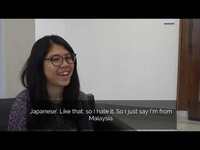 Bridging Community & Culture: Mosaic Cultural Identity Syarifah Nur Fathima is a Japanese International student of Malaysian descent who was born and raised in Tokyo, Japan. She came to Canada 2 years ago (September 2017) and has since been volunteering at the London Japanese School and acting as a TA for Professor Mitsume Fukui here at Western. In Japan, she studied Japanese Literature and Culture at Musashino University. For her graduate at Western, she completed an English Teaching program for International students in order to further develop her English-speaking skills. She just recently graduated and hopes to find work in London before returning to Malaysia. There she hopes to secure a career teaching Japanese while utilizing her polylingual skills.
Bridging Community & Culture: Mosaic Cultural Identity Syarifah Nur Fathima is a Japanese International student of Malaysian descent who was born and raised in Tokyo, Japan. She came to Canada 2 years ago (September 2017) and has since been volunteering at the London Japanese School and acting as a TA for Professor Mitsume Fukui here at Western. In Japan, she studied Japanese Literature and Culture at Musashino University. For her graduate at Western, she completed an English Teaching program for International students in order to further develop her English-speaking skills. She just recently graduated and hopes to find work in London before returning to Malaysia. There she hopes to secure a career teaching Japanese while utilizing her polylingual skills. -
 Staying Connected Between Two Cultures The video is made to portray my community partner’s experience of migrating from Colombia to Canada. (as stated in the subject) It portrays how she had to learn to adapt to a completely different and new culture, and what she has done to stay connected with both her heritage in Colombia and new life in Canada. It shows how she overcame obstacles to build a new life and the things that helped her stay focused and feel a part of Canadian culture. It discusses the Colombian community here in London, Ontario and her work as an Army reserve for Canada. This video’s goal was to analyze her completely different lives and views of both cultures, and see what she did in order create her own identity. She also compares aspects of the two countries and what she finds most important to herself.
Staying Connected Between Two Cultures The video is made to portray my community partner’s experience of migrating from Colombia to Canada. (as stated in the subject) It portrays how she had to learn to adapt to a completely different and new culture, and what she has done to stay connected with both her heritage in Colombia and new life in Canada. It shows how she overcame obstacles to build a new life and the things that helped her stay focused and feel a part of Canadian culture. It discusses the Colombian community here in London, Ontario and her work as an Army reserve for Canada. This video’s goal was to analyze her completely different lives and views of both cultures, and see what she did in order create her own identity. She also compares aspects of the two countries and what she finds most important to herself. -
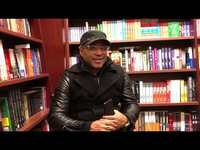 Creating Identity through Music This portrait demonstrates through various music clips, the integration of music and the importance in my partners life. Through being from a family of doctor’s in Havana, being the only musician enabled him to attend school for “free” in Cuba after being 1 of 6 chosen. Through participating in a program that enables him to arrive in Canada, and for a fee that is to be paid back to the government, is able to play concerts in Canada. He speaks about how the connection of music amongst different composers, no matter the sound or instrument, is a family and a connected language. He represents his identity through the constant listening and incorporating of music into his saxophone, drums, and piano gigs, alongside dj’ing at various clubs within London. Through tailoring his music towards the cultural crowd, and being able to adapt and fit in with the crowd with unique and current songs, brings forward the ability for various cultural groups to feel connected through the language of music. A universal language.
Creating Identity through Music This portrait demonstrates through various music clips, the integration of music and the importance in my partners life. Through being from a family of doctor’s in Havana, being the only musician enabled him to attend school for “free” in Cuba after being 1 of 6 chosen. Through participating in a program that enables him to arrive in Canada, and for a fee that is to be paid back to the government, is able to play concerts in Canada. He speaks about how the connection of music amongst different composers, no matter the sound or instrument, is a family and a connected language. He represents his identity through the constant listening and incorporating of music into his saxophone, drums, and piano gigs, alongside dj’ing at various clubs within London. Through tailoring his music towards the cultural crowd, and being able to adapt and fit in with the crowd with unique and current songs, brings forward the ability for various cultural groups to feel connected through the language of music. A universal language. -
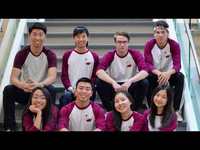 Negotiating a Bi-cultural Identity: An Interview with Andy Fuchigami The video features an interview with Andy Fuchigami, a Canadian-born member of the Japanese community in London. He grew up in a North American cultural environment, which resulted in him negotiating between two very different cultural identities. The video focuses on his feelings and experiences as a minority at school, leading to his struggle in accepting his Japanese identity. He explains how he avoided making Japanese friends, speaking in Japanese, and even trying to hide his Japanese name. However, Andy’s views have now totally shifted, and he has completely embraced his Japanese cultural identity, owing to some life experiences he has had. He went from having only Caucasian friends to making more Japanese friends, and he now actively participates in Japanese cultural activities in London.
Negotiating a Bi-cultural Identity: An Interview with Andy Fuchigami The video features an interview with Andy Fuchigami, a Canadian-born member of the Japanese community in London. He grew up in a North American cultural environment, which resulted in him negotiating between two very different cultural identities. The video focuses on his feelings and experiences as a minority at school, leading to his struggle in accepting his Japanese identity. He explains how he avoided making Japanese friends, speaking in Japanese, and even trying to hide his Japanese name. However, Andy’s views have now totally shifted, and he has completely embraced his Japanese cultural identity, owing to some life experiences he has had. He went from having only Caucasian friends to making more Japanese friends, and he now actively participates in Japanese cultural activities in London. -
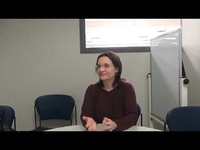 The German Democratic Republic: Before and Beyond This project is an interview with Dr. Nina Rosenbusch, a woman born in the German Democratic Republic (GDR). Rosenbusch was only a teenager when the Berlin Wall fell down in 1989 and so she is part of the generation of Germans who came into adulthood in the newly reunified Germany. This interview seeks to understand the legacy of the GDR’s culture for the citizens of modern Germany. In particular, the discussion focuses on the generation of Rosenbusch’s parents who only knew Germany as two separated states, unlike the generation of Rosenbusch’s grandparents who were able to remember a previously unified Germany. The involvement of the state in daily life is also discussed, with a focus on the German secret police service, called the Stasi. As Rosenbusch’s family did not protest against the state, they were not as affected as some individuals but were nonetheless limited in what they could do and say. Ultimately, the German Reunification was and is very popular in the former GDR, although there are still slight cultural differences and difficulties for those who lived most of their lives before 1989.
The German Democratic Republic: Before and Beyond This project is an interview with Dr. Nina Rosenbusch, a woman born in the German Democratic Republic (GDR). Rosenbusch was only a teenager when the Berlin Wall fell down in 1989 and so she is part of the generation of Germans who came into adulthood in the newly reunified Germany. This interview seeks to understand the legacy of the GDR’s culture for the citizens of modern Germany. In particular, the discussion focuses on the generation of Rosenbusch’s parents who only knew Germany as two separated states, unlike the generation of Rosenbusch’s grandparents who were able to remember a previously unified Germany. The involvement of the state in daily life is also discussed, with a focus on the German secret police service, called the Stasi. As Rosenbusch’s family did not protest against the state, they were not as affected as some individuals but were nonetheless limited in what they could do and say. Ultimately, the German Reunification was and is very popular in the former GDR, although there are still slight cultural differences and difficulties for those who lived most of their lives before 1989. -
 An Identity of Work: The Importance of Work and Family in the Life of an Arabic Canadian Immigrant The story of an Arabic Canadians journey in immigrating, finding employment, and regaining his identity in his chosen line of work, This is a portrait which demonstrates the struggles new immigrants face, the highs and lows of moving countries and being in new cultural contexts, and how identity can be lost and found in the work that we do. Through the lens of this portrait can be seen the truth of what it is like to search out opportunity and work hard for a dream that many Canadian citizens share: to do what you love with those you love in a place where you feel secure and happy.
An Identity of Work: The Importance of Work and Family in the Life of an Arabic Canadian Immigrant The story of an Arabic Canadians journey in immigrating, finding employment, and regaining his identity in his chosen line of work, This is a portrait which demonstrates the struggles new immigrants face, the highs and lows of moving countries and being in new cultural contexts, and how identity can be lost and found in the work that we do. Through the lens of this portrait can be seen the truth of what it is like to search out opportunity and work hard for a dream that many Canadian citizens share: to do what you love with those you love in a place where you feel secure and happy. -
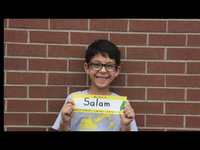 First Day of School: The Story of Iman's Son's First Day of School in Canada
First Day of School: The Story of Iman's Son's First Day of School in Canada -
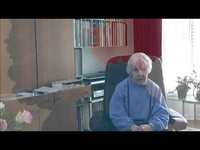 Home in Canada: Immigrant from Germany to Canada in 1980s Reinhild came from Chemnitz, Germany. She immigrated with her family to Canada in the 1980s. She taught mathematics in Western before. This video will introduce her immigrant process and the factors she thinks affect her integrated into Canada.
Home in Canada: Immigrant from Germany to Canada in 1980s Reinhild came from Chemnitz, Germany. She immigrated with her family to Canada in the 1980s. She taught mathematics in Western before. This video will introduce her immigrant process and the factors she thinks affect her integrated into Canada. -
 Fostering a Sense of Community: An Immigration Story An Immigration Story
Fostering a Sense of Community: An Immigration Story An Immigration Story